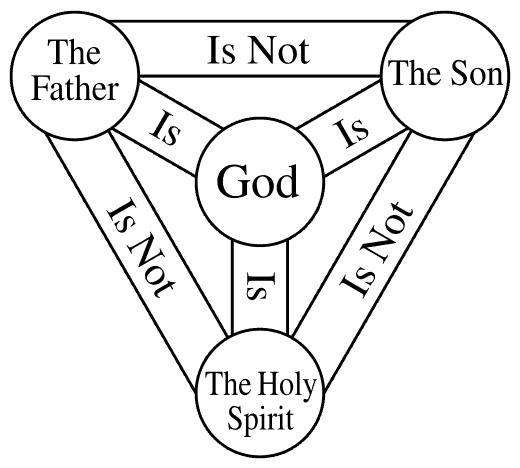
Concerns on (Some) Modern Regulative Principle Proponents
Times recently ranked 3rd the “new Calvinism” as the “idea that is changing the world right now”1. I myself have been noticing this. This is quiet true in Korea; and I thank the Lord for his abundant blessings to the Christians in Korea, and raising up reformed churches there.
It is worth while to note that one of the main object or reason for the Reformation was to bring back biblical worship.2 The Hebrew word “shachah” (translated “worship” in English) has a simple and clear meaning of “bowing down”; but since it is so easy for humans to understand it as a physical activity, our Lord taught us that we must bow down “in spirit and in truth” (John 4:23.) — not only this means one has to bow in Holy Spirit to the true God, it also means that we have to bow with our soul, genuinely, acknowledging that we are before the presence of Him. Calvin strongly claimed that such spiritual bowing down is the only method of worship from the beginning.3
Thus, worship is not a collection of prayer, sining, etc. We can sing or pray or read the scripture in a worshipping manner; but it is not correct to say that such activities are what constitute a worship.4 To prevent any unwarranted merit in the physical ceremonies—no matter how sincerely one participates in it—let me quote the words of Pink:
People imagine that if they attend a religious service, are reverent in their demeanor, join in the singing of the hymns, listen respectfully to the preacher, and contribute to the collection, they have really worshipped God. Poor deluded souls, a delusion which is helped forward by the priest-craft and preacher-graft of the day. Over against this delusion are the words of Christ in John 4:24, which are startling in their plainness and pungency: “God is Spirit; and they that worship Him must worship Him in spirit and in truth.” (Arthur Pink, Worship)
It is, however, a human inclination to put any merit or even a slightest weight on the external show. Roman Catholic Church was affected by it; hence came the necessity of the Reformation.
True Regulative Principle starts by reforming and regaining the biblical definition of worship, not by regulating ceremonies. That is how Jesus answered the question of the Samaritan woman, “Shall we worship on this mountain or in Jerusalem?” It was also one of the main point of Calvin’s letter The Necessity of Reforming The Church.
Nonetheless, it is sad to see such “regulate the ceremony” approach taken by some (very few) of the contemporary proponents of the Regulative Principle of Worship while using a convoluted definition of worship, trying to define it using the external ceremonies. They ask questions like “Can we praise God with lyrics not taken from the scripture?”, “Should offering be part of worship?”5. I understand the good intention, the willingness to glorify God in these questions (I myself am a member of a church where we sing Psalms exclusively without any instruments) yet, often times these questions are raised in an effort to characterize worship by external ceremonies; not only such approach is contrary to the biblical meaning of the word ‘shachah’ (worship)6, but even opposed to the views of Calvin7. The root cause of such error is that they do not use the clear and biblical definition of worship8.
The same few modern Regulative Principle proponents raise voices that the 2nd Commandment commands us to use the external form of worship dictated by the Word of God. Again, the premise that worship consists of certain external form is incorrect — borrowing the words of Calvin, “next to idolatry, there is nothing for which they [the prophets] rebuke the people more sharply than for falsely imagining that the worship of God consisted in external show.”9 The reason that God prohibited bowing to images in the 2nd Commandment is because He is a spirit and, as our Lord told us, bowing “in spirit and in truth” is what God asks; not because there is another external method of worship — again, borrowing the words of Calvin, “Nor from the beginning was there any other method of worshipping God”.10
So do I think, say, “watching a biblical skit can be a worship”? No! But not because it has the wrong external form, but because worship is what you do with your soul, not with your eyes.
True reformation of worship is to bring back biblical definition and method of worship, and that is what the Regulative Principle is about, not to come up with a radical and different regulations for worship ceremonies. Let us give our true bow, our spiritual worship, to our God with gratitude.
(Related articles on the definition of worship and other issues can be found following this link.)
http://www.time.com/time/specials/packages/article/0,28804,1884779_1884782_1884760,00.html ↩
See, for instance, Calvin’s The Necessity of Reforming the Church ↩
Calvin’s view on worship is carefully written in his letter The Necessity of Reforming the Church. All the quote below are from that letter. What he says there is that worship cannot be defined in terms of external forms; and that the only method of worship God commands us is “bowing down” (the true meaning of the Hebrew word ‘schacah’ for worship) in spirit and in truth. He writes,
God requires us to worship Him in a spiritual manner,
To emphasize that biblical worship is a “spiritual bow”, not a physical activity, Calvin again writes (words in brackets added by myself for clarity),
[The] ceremonies are subservient, as helps or instruments, in order that, in the performance of divine worship, the body may be exercised at the same time with the soul.”
He also writes (words in brackets added by myself for clarity),
[In these spiritual bow] consists the true and sincere worship which alone God approves, and in which alone He delights, is both taught by the Holy Spirit throughout the Scriptures and is also, antecedent to discussion, the obvious dictate of piety. Nor from the beginning was there any other method of worshipping God, the only difference being, that this spiritual truth, which with us is naked and simple, was under the former dispensation wrapt up in figures. And this is the meaning of our Savior’s words, “The hour cometh, and now is, when the true worshippers shall worship the Father in spirit and in truth,” (John 4:23.) For by these words he meant not to declare that God was not worshipped by the fathers in this spiritual manner, but only to point out a distinction in the external form, viz., That while they had the Spirit shadowed forth by many figures, we have it in simplicity. But it has always been an acknowledged point, that God, who is a Spirit, must be worshipped in spirit and in truth.
Notice that by “wrapt up in figure” he means that “this spiritual truth” was so, not the worship itself. Worship always had a clear meaning of “bowing down” in Hebrew. Calvin is pointing out that such bow was to be done in spirit and in truth regardless of ages. In the same letter he writes, (again, words in brackets added by myself for clarity)
For, next to idolatry, there is nothing for which they [the prophets] rebuke the people more sharply than for falsely imagining that the worship of God consisted in external show.
Nowhere in the letter Calvin mentions any physical activity to describe biblical worship. To Calvin, reading of scripture or prayer is to aid our worship, that is, our spiritual bowing down; they are not what establish a worship. In the same letter, Calvin sees prayer and praise as an inevitable response of a worshiper as he/she kneels down before God; they are consequences of spiritual worship (bow), not actions that build up a worship:
Let us now see what is meant by the due worship of God. Its chief foundation is to acknowledge Him to be, as He is, the only source of all virtue, justice, holiness, wisdom, truth, power, goodness, mercy, life, and salvation; in accordance with this, to ascribe and render to Him the glory of all that is good, to seek all things in Him alone, and in every want have recourse to Him alone. Hence arises prayer, hence praise and thanksgiving — these being attestations to the glory which we attribute to Him. This is that genuine sanctification of His name which He requires of us above all things.
Calvin clearly distinguishes the worship itself and the worship ceremonies. The more closer the worship ceremonies are to the spiritual reality of worship, the better. This is why Calvin wanted to make worship services or ceremonies as simple as possible; for instance, he didn’t want to use musical instruments when trying to ‘schacah’; not that it somehow corrupts the worship itself, but it can obscure the true meaning of worship, that is, ‘schacah’ (bowing down) in spirit and in truth.
This footnote is mainly from the article Calvin on Worship ↩
For more on the issue of the definition of worship, see Worship Trouble — What is Worship? ↩
Typical examples can be found here and here. Note especially how the meaning of worship is obscured; a convoluted definition of worship is at the root of all sorts of problems, whereas the biblical meaning of worship ‘shachah’ which is so simple so that the children of the Kingdom can easily understand. For more on the issue of the definition of worship, see Worship Trouble — What is Worship? ↩
For more on the issue of the definition of worship, see Worship Trouble — What is Worship? ↩
For more on Calvin’s view on worship, see Calvin on Worship ↩
For more on the issue of the definition of worship, see Worship Trouble — What is Worship? ↩
ref:3 ↩
ref:3 ↩




